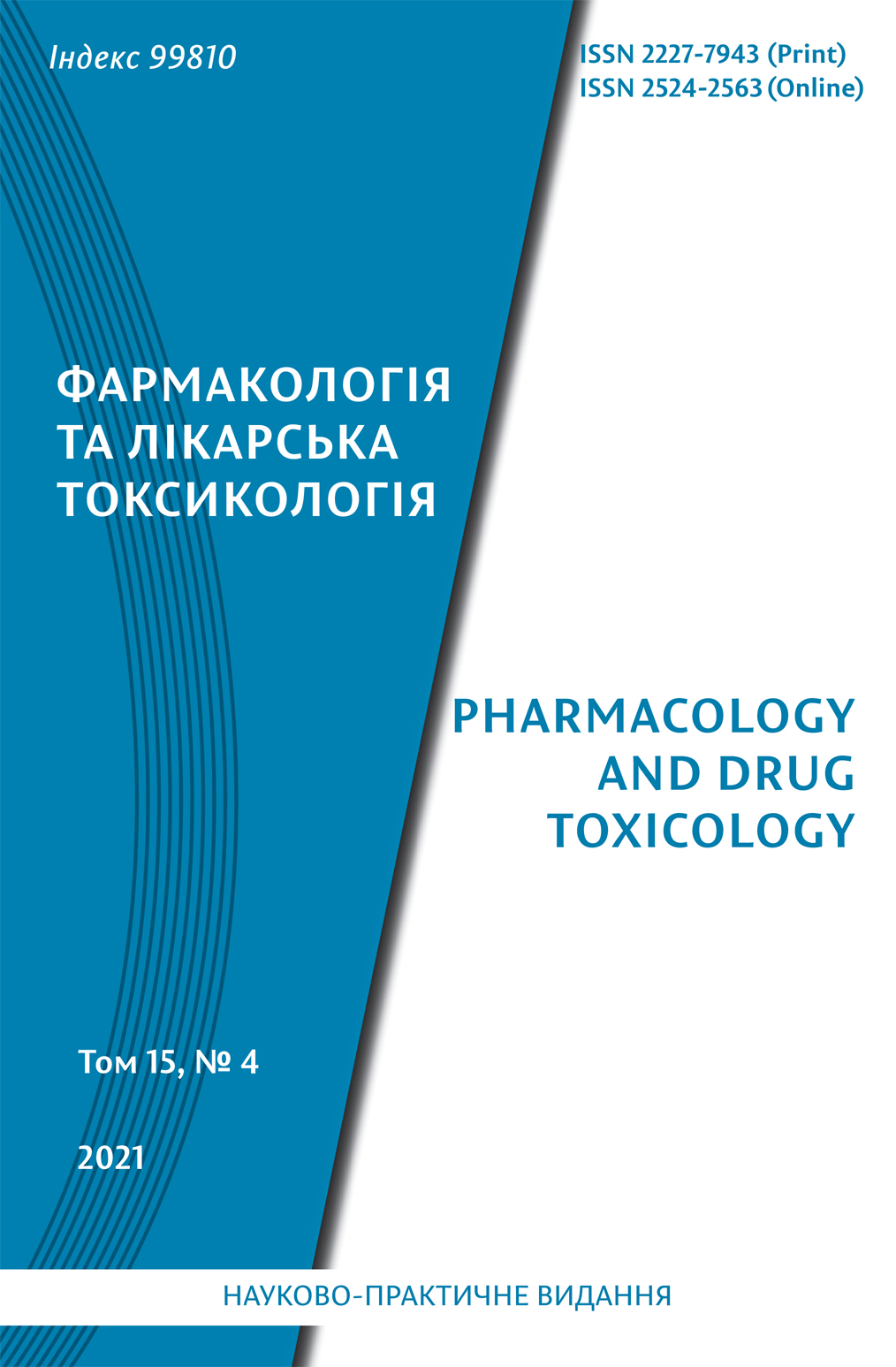Abstract
It is known that metabolic syndrome (MS) negatively affects male sexual function and often it is the cause of male infertility. The reproductive system is especially vulnerable under the negative influence of external factors and diseases in childhood and adolescence when its formation takes place. Literature data on the effect of metformin (which is usually prescribed for MS) on male reproductive function, are rather contradictory.
The aim of the study – to evaluate the effectiveness of metformin and its combination with metovitan when administered to male rats with MS concerning the ability to prevent the development of oxidative stress in the gonads and the development of subfertility.
A 10 % fructose solution was used to reproduce the MS model. It was given instead of drinking water to 3 weeks age male rat pups with initial body weight 50–70 g. Animals were divided into 4 groups: 1 – control (drinking water); 2 – MS (10 % fructose solution for 60 days); 3 – similar to the previous group + metformin
(orally 266 mg/kg for the last 30 days of the experiment); 4 – similar to the previous group + metovitan (77.3 mg/kg orally, three 5-day courses for the last 30 days of the experiment).
In the testes of rats with MS, the increase in the rate of ascorbate-induced formation of TBA reactants and the activity of SOD respectively 35 % and 37 %, (p < 0.05) were noted. At the same time, in the testes of animals with MS there was a slight but significant (p < 0.05) decrease in the content of reduced
glutathione. In addition, it was shown that under the conditions of MS the content of ceruloplasmin – the main extracellular antioxidant in the blood was diminishing 1.2 times (p < 0.05) as compared with the control. In animals of this group, there was a decrease in the steroidogenic activity of the testes. Serum
testosterone decreased 1.6-fold (p < 0.05), which can be considered as one of the components of the overall failure of adaptation associated with MS. The data obtained on the decrease in testosterone levels in rats with MS, together with the detected decrease in the number of sperm may indicate the development
of hypogonadism in animals of this group. Administration of metformin did not prevent above-mentioned changes. The addition of metovitan to the metformin in the treatment regimen for MS promoted the restoration of antioxidant defense components activity in the testes and blood serum. Under conditions of co-administration of metformin and metovitan, the level of serum testosterone in rats of this group increased in comparison with animals with MS. In contrast to monotherapy, the use of metformin with metovitan contributed to the normalization of both the weight of the testes and epididymis to the control level and the restoration of sperm production, which in turn had a positive effect on the fertilizing ability of male rats under MS induced at juvenile age.
